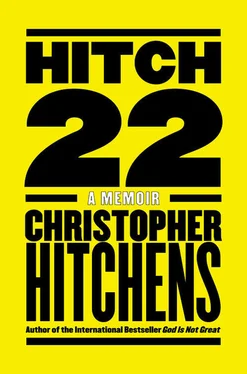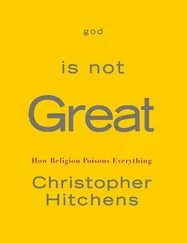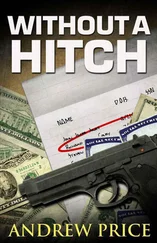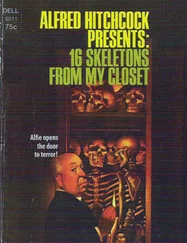I began this highly selective narrative by citing Auden on the unadvisability of being born in the first place—a view from which he quickly waltzed to Plan B: make the most of the dance (or, as Dorothy Parker elsewhere phrased it, “You might as well live”). In better moments I prefer the lyrical stoicism of my friend and ally Richard Dawkins, who never loses his sense of wonder at the sheer unlikelihood of having briefly “made it” on a planet where crude extinction has held such sway, and where the chance of being conceived, let alone safely delivered, is so infinitesimal.
When my beloved friend James Fenton came back from Indochina, having witnessed the fall of Saigon and Phnom Penh and the end, both tragic and ambiguous, of a war which so many of us had regarded as a test of sheer commitment, he was somewhat shaken. The closing words of one of his most exquisite poems from that period were: “I’m afraid that all my friends are dead.” But he knew that if there were any survivors they would know how to contact him, and when some of them did, and being the conscience-determined person he was and is, he went straight back to the frontiers and the camps to see how he could be of help. The resulting poems—collected as Children in Exile —comprise an essential complement to their predecessors in Memory of War . One of the latter is titled “Prison Island.” I happen to remember the genesis of this outwardly melancholy but diamond-hard poem particularly well: we had both just been verbally and aurally assailed by a braggart dogmatist who asserted of his own sect: “The possibility of defeat does not enter our calculations.”
This honking, tyrannical self-regard so annoyed James, and I think so much put him in mind of the deadly certainties that had brought such havoc to his Asian friends, that he could not rest until he had caught its hubris in the net of his verses. I have a poignant memory of him reading the first draft aloud to me, in the attic room where he was then lodging. One stanza in particular caught and held me, too:
My dear friend, do you value the counsels of dead men?
I should say this. Fear defeat. Keep it before your mind
As much as victory. Defeat at the hands of friends,
Defeat in the plans of your confident generals.
Fear the kerchiefed captain who does not think he can die.
Over the course of the last decade, I have become vividly aware of a literally lethal challenge from the sort of people who deal in absolute certainty and believe themselves to be actuated and justified by a supreme authority. To have spent so long learning so relatively little, and then to be menaced in every aspect of my life by people who already know everything, and who have all the information they need… More depressing still, to see that in the face of this vicious assault so many of the best lack all conviction, hesitating to defend the society that makes their existence possible, while the worst are full to the brim and boiling over with murderous exaltation.
It’s quite a task to combat the absolutists and the relativists at the same time: to maintain that there is no totalitarian solution while also insisting that, yes, we on our side also have unalterable convictions and are willing to fight for them. After various past allegiances, I have come to believe that Karl Marx was rightest of all when he recommended continual doubt and self-criticism. Membership in the skeptical faction or tendency is not at all a soft option. The defense of science and reason is the great imperative of our time, and I feel absurdly honored to be grouped in the public mind with great teachers and scholars such as Richard Dawkins (a true Balliol man if ever there was one), Daniel Dennett, and Sam Harris. To be an unbeliever is not to be merely “open-minded.” It is, rather, a decisive admission of uncertainty that is dialectically connected to the repudiation of the totalitarian principle, in the mind as well as in politics. But that’s my Hitch-22. I have already described some of the rehearsals for this war, which the relativists so plaintively call “endless”—as if it were not indeed the latest chapter of an eternal struggle—and I find that for the remainder of my days I shall be happy enough to see if I can emulate the understatement of Commander Hitchens, and to say that at least I know what I am supposed to be doing.

Portrait of the author as a young man. The novel is called Soft Answers , and it proved to be second-rate.

With Yvonne.

The Commander.

Yvonne.
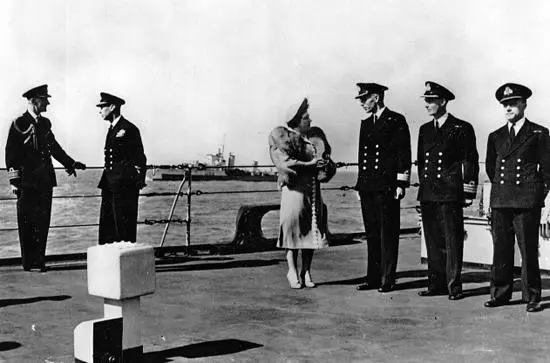
King and Country. The Commander (far right) welcomes the future King George to the HMS Ajax . The woman in the picture was to become the last Empress of India.
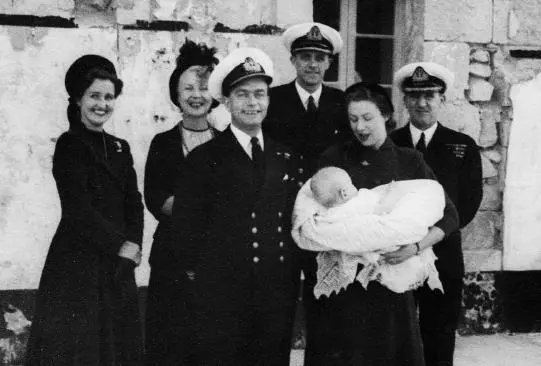
Without any previous qualifications, I became a member of the Church of England. Malta, 1949.
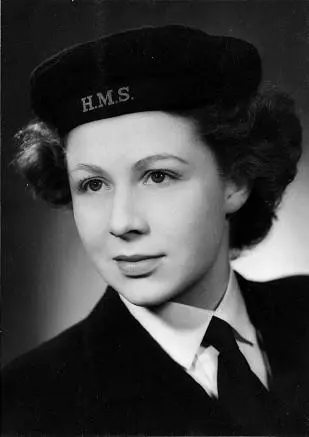
Another Hitchens against Hitler: Yvonne joins the Royal Navy.
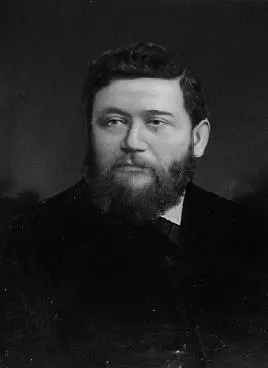
Nathan Blumenthal, my great-great-grandfather.
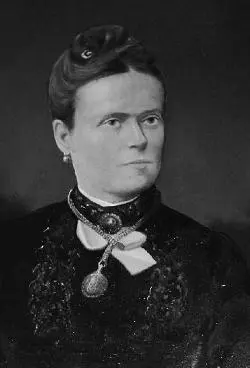
Sarah Blumenthal.
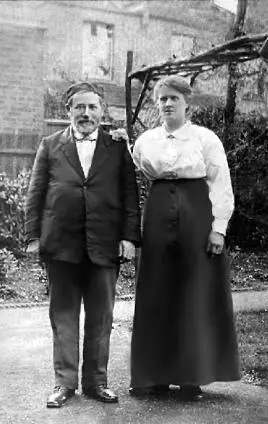
Nathan and Sarah.
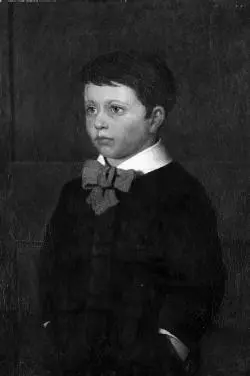
Great-Uncle Harry, posed as “Young England,” 1900.
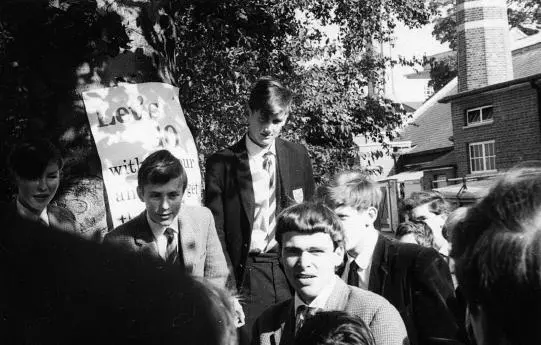
School general election, 1964. Michael Prest stands guard, while my Communist opponent Bevis Sale dominates the foreground.
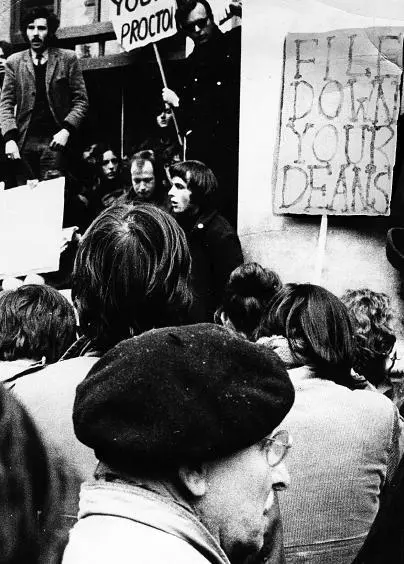
Rabble-rousing at Oxford.
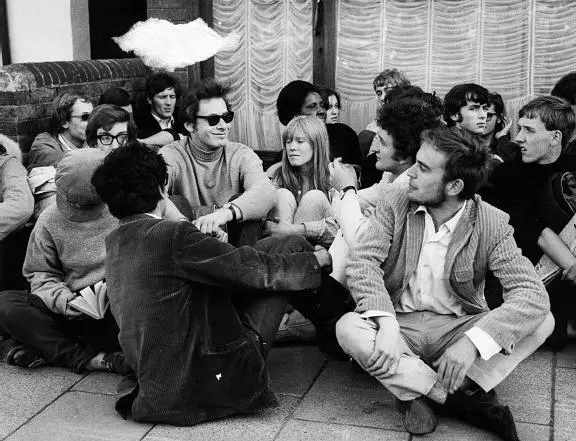
Blockading a racist hairdresser, 1968. Arrest to follow.
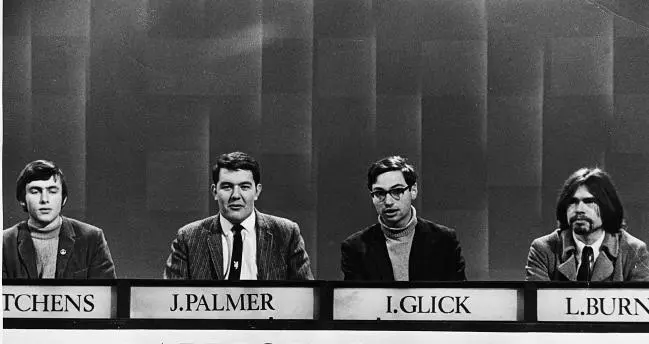
My first television appearance. In this prestige quiz show, Balliol’s reputation as the college for “effortless superiority” received a near knock-out blow.
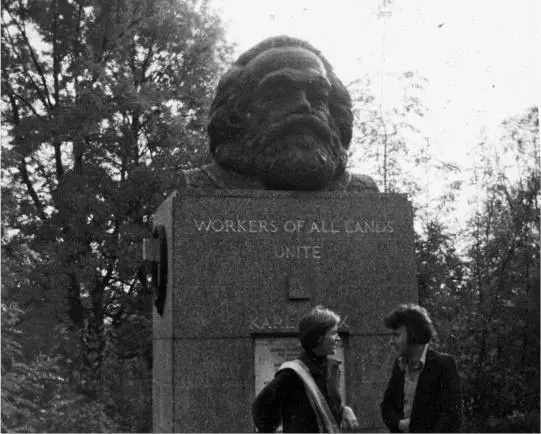
With friend and tutor.
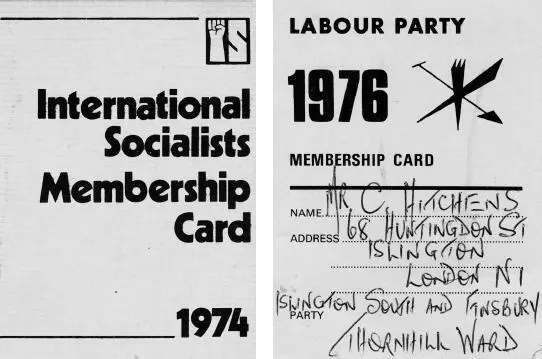
Card carrying.
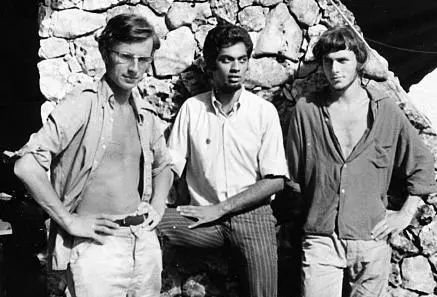
In Cuba, at a work camp for young revolutionaries, 1968.
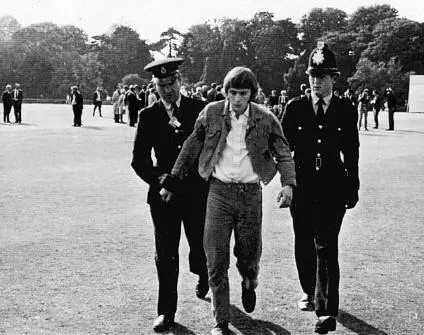
Pursuing my studies at Oxford, 1968. (© Billett Potter, Oxford)

On the picket line at a non-union factory.

In Babylon, Iraq, 1975.
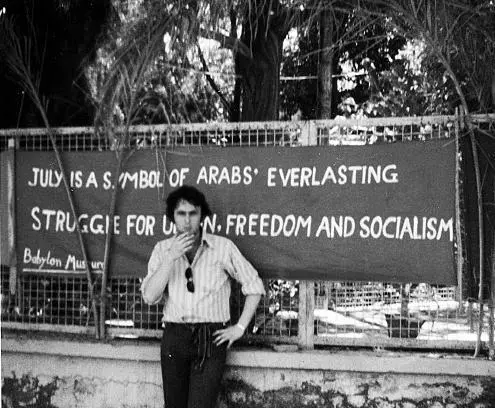
In Iraq with a Ba’athist banner, 1975.
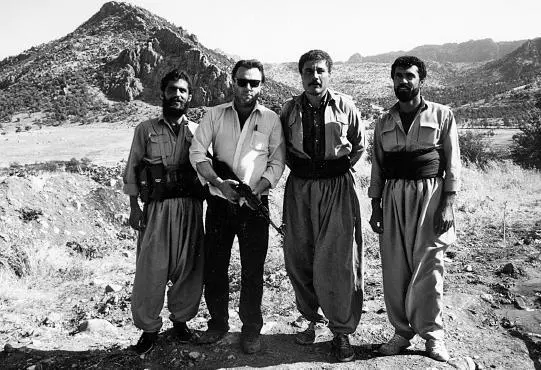
Striking an attitude in Kurdistan with Saddam’s enemies during the first Gulf War.
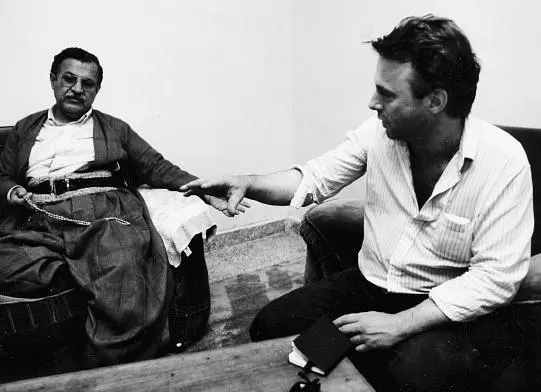
With Jalal Talabani at his mountain HQ in 1991: then the leader of a murdered and dispossessed people, and now the first-ever elected president of Iraq.
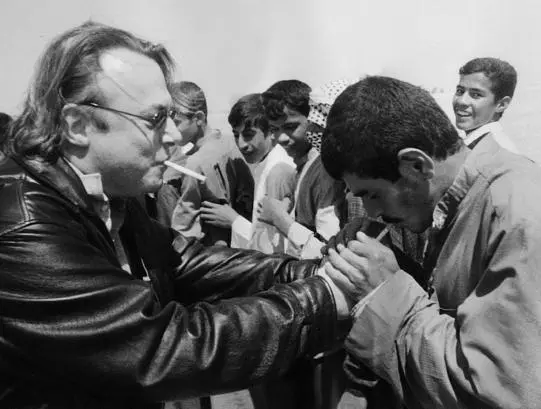
Liberating Iraq.
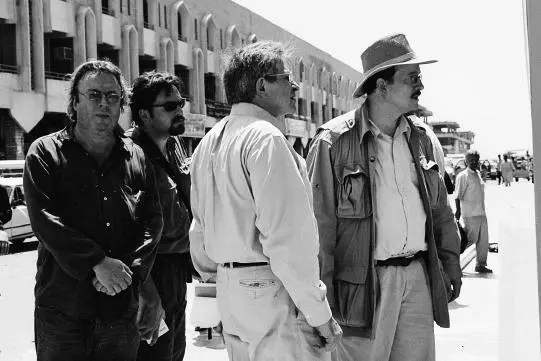
In Iraq with Paul Wolfowitz, 2003.
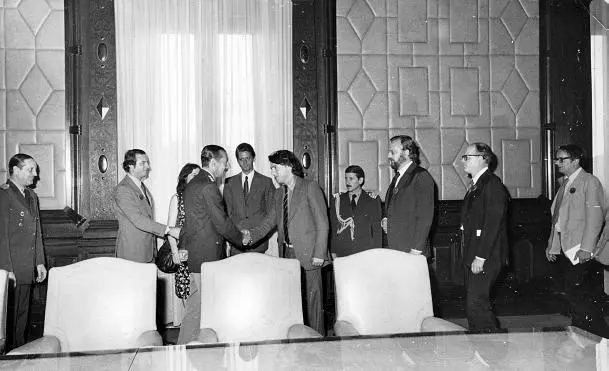
Swallowing vomit while greeting General Videla of Argentina in Juan Peron’s old palace, 1977.
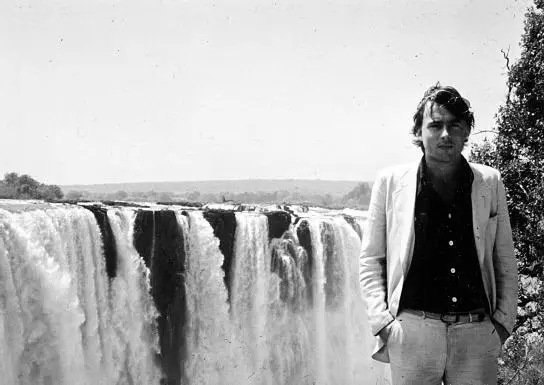
In Zimbabwe, 1977.
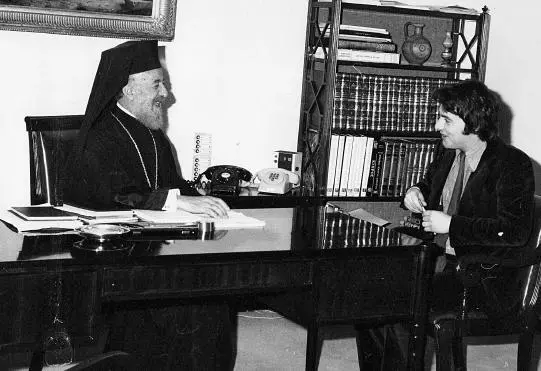
With the only priest I’ve ever liked, Archbishop Makarios, president of Cyprus.
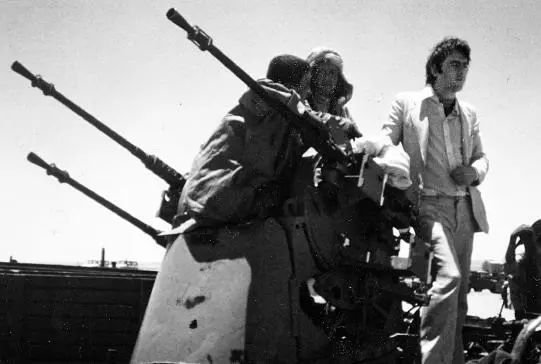
In the Sahara with Polisario guerrillas around a captured Moroccan tank, 1977.
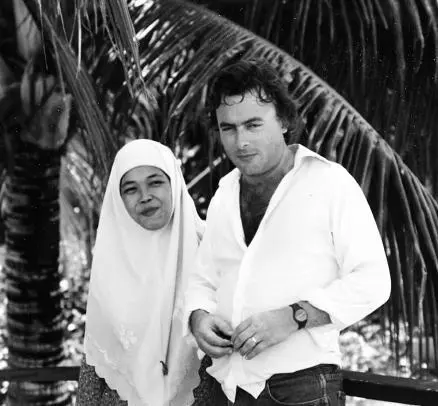
With an extremely moderate Muslim in Malaysia.
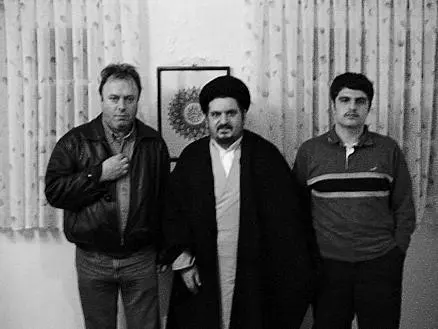
With Sayeed Khomeini, courageous foe of his grandfather’s theocracy, in Qum, Iran, in 2006.
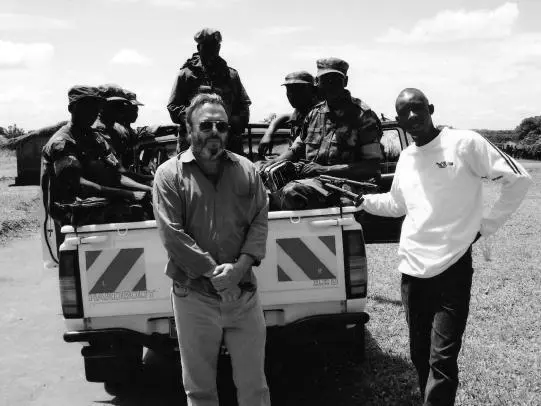
With Ugandan soldiers pursuing the Lord’s Resistance Army, 2007.
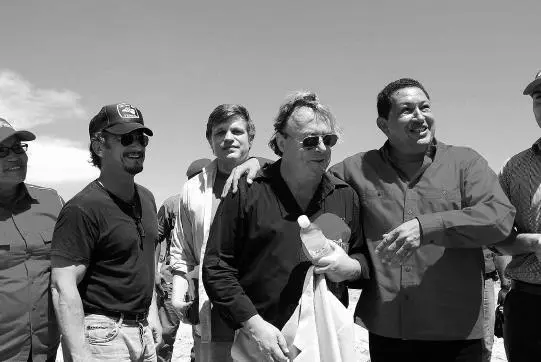
Getting to know the General: in Venezuela with Sean Penn, Douglas Brinkley, and the dictator, October 2008.
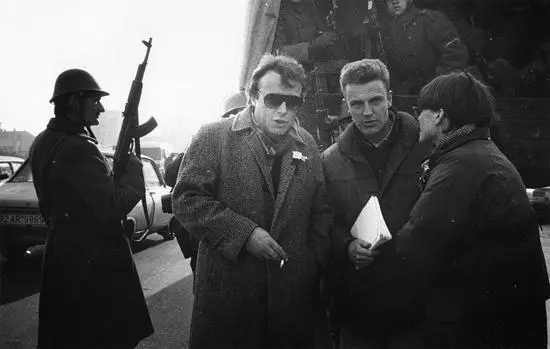
The Romanian Revolution, 1989.
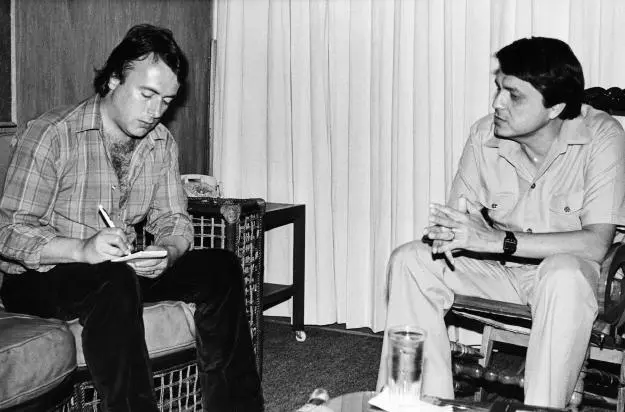
In Nicaragua with Vice President Sergio Ramirez, a Sandinista and novelist.
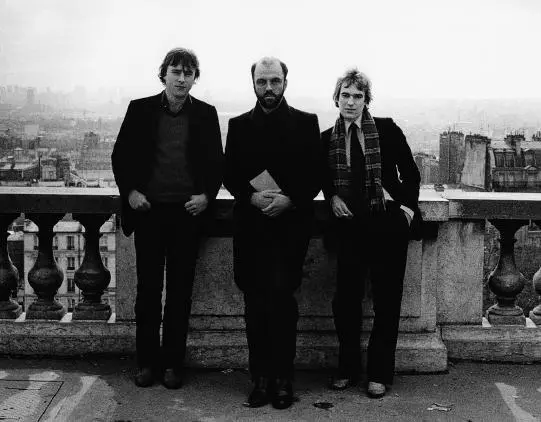
In Paris with James Fenton and Martin Amis, 1979. (Angela Gorgas, © Angela Gorgas)
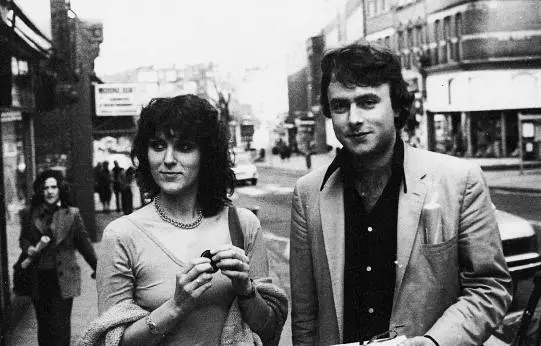
With Angela Gorgas, shot by Martin, Paris, 1979. (Martin Amis and Angela Gorgas, © Angela Gorgas)
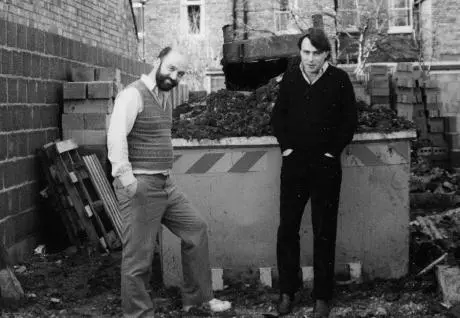
With James Fenton and “The Skip.”
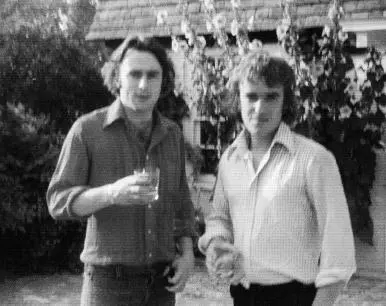
With Martin at the Soames house in Hampshire, taking a break from croquet, 1977.
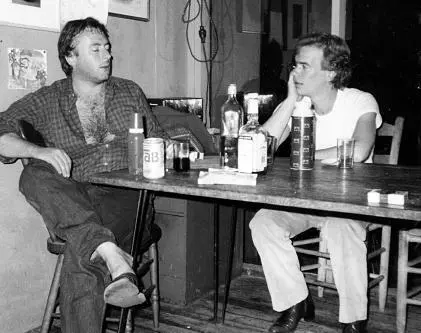
Reviewing the situation with Martin in Cape Cod, 1985.
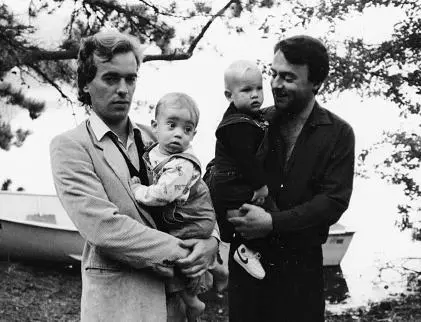
Passing on our genes: with Louis Amis and Alexander Hitchens, Cape Cod, 1985.
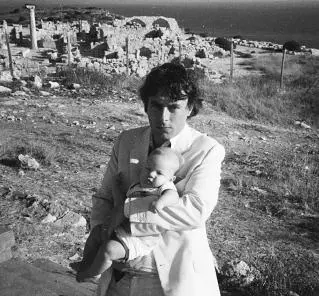
In Cyprus with Alexander.
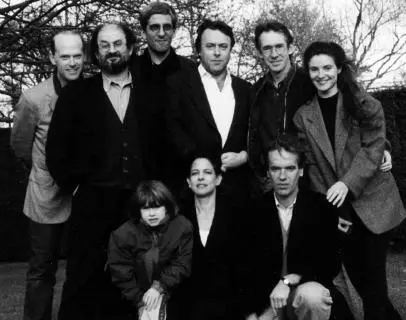
Shoulder to shoulder with Salman during his time in hiding: (standing) Andrew Wylie, SR, David Rieff, Your Humble Servant, Ian McEwan, Elizabeth West; (foreground) Erica Wylie, Carol Blue, and Martin Amis. (© Elizabeth West)
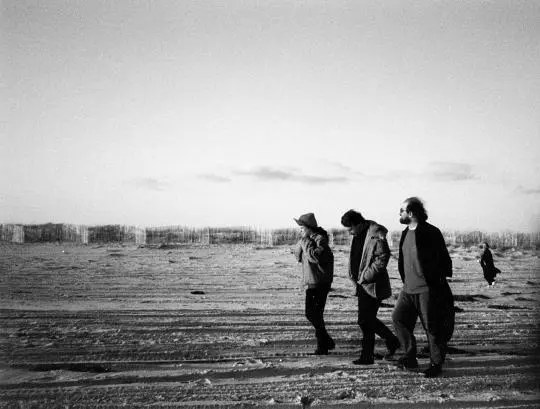
On the beach with Salman, at an undisclosed location (somewhere near West Egg, c. 1992). (© Elizabeth West)
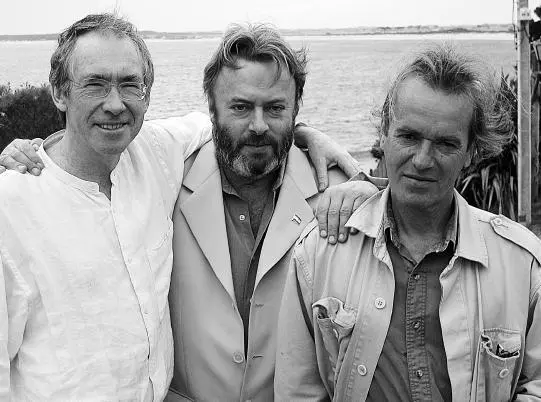
With Ian and Martin in Uruguay near Charles Darwin’s landfall. This is where I started writing god Is Not Great .
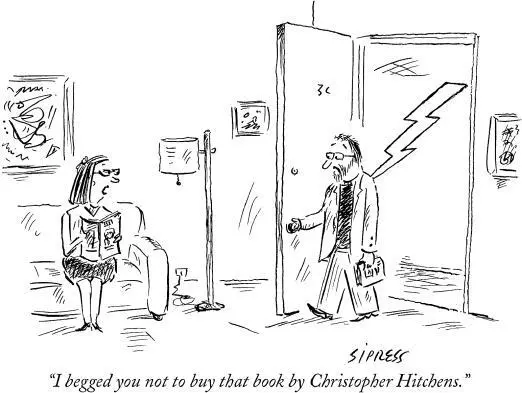
Famous at last: The New Yorker knows who I am. (© David Sipress/CondéNast Publications/www.cartoonbank.com)
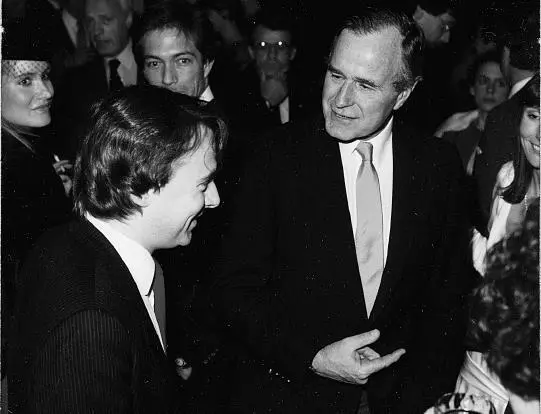
Advising George Bush to leave Nicaragua alone and stop trading arms for hostages in Iran, at Christopher Buckley’s wedding in 1984. Lucy Buckley and Camilla Horne appear to be enthusing with this advice-not-taken.
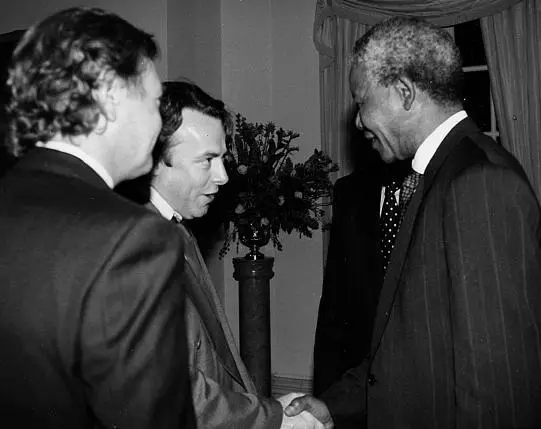
With Nelson Mandela at the British Embassy in Washington, D.C.
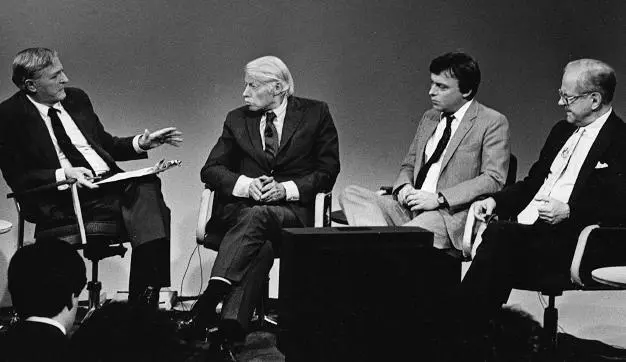
On Firing Line with William F. Buckley, Harrison Salisbury, and Robert Conquest.
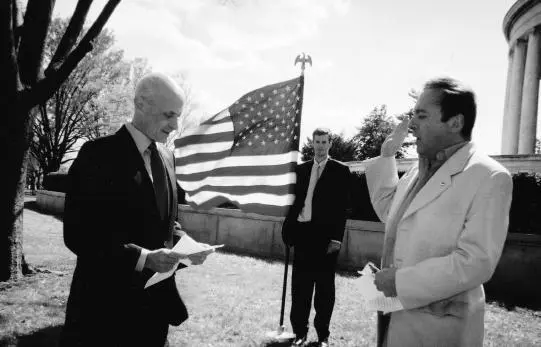
Taking the oath of citizenship from Michael Chertoff on Thomas Jefferson’s birthday, 2007. I am holding a copy of the Virginia Statute on Religious Freedom.
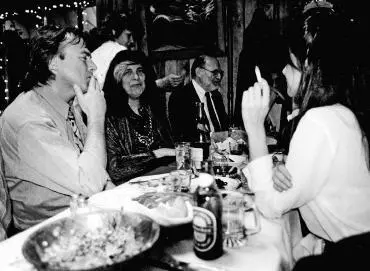
With Susan Sontag, Victor Navasky, and Carol. (Annie Leibovitz)
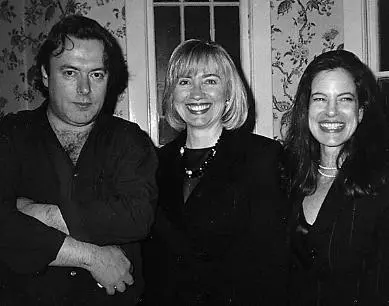
With the First Lady at Sidney Blumenthal’s birthday in 1994. This was before he disgraced my other family name, and well before he became Mrs. Clinton’s muck-spreader against Barack Obama in the 2008 election.
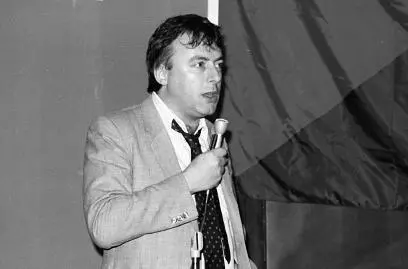
Speaking up for the intifadah with Edward Said at Columbia University.
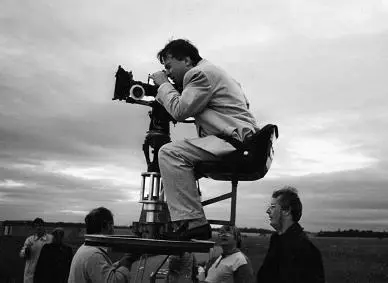
Making a documentary in Scotland.
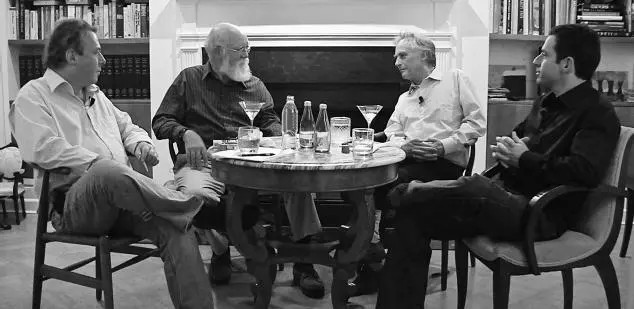
At last, a party of positive non-belief to which I can be fully committed. With Professors Daniel Dennett and Richard Dawkins and Dr. Sam Harris, at the inaugural meeting of the “Four Horsemen” faction at my home in Washington. I look and feel flattered by the implied parity. (Photo by Josh Timonen)
Читать дальше
